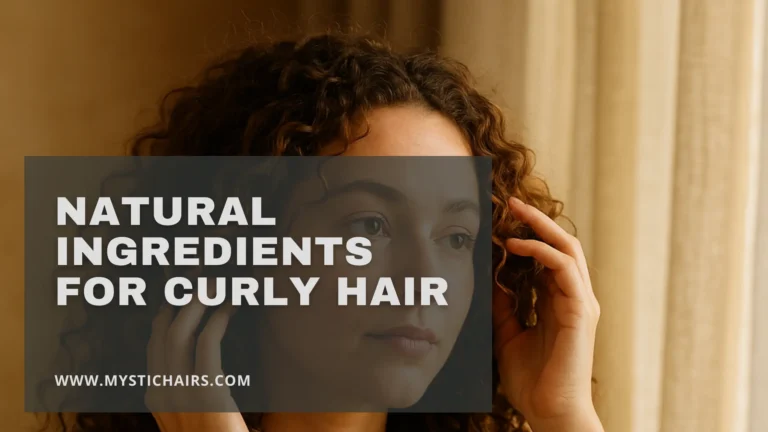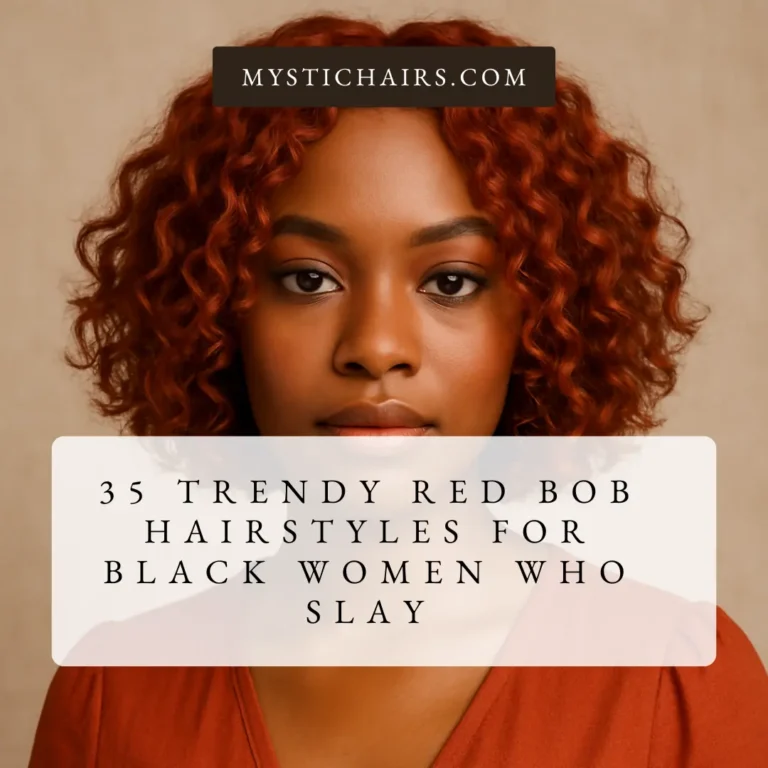How to Make Your Hair Softer With Natural Methods: 15 Proven Remedies
How to make your hair softer with natural methods is a goal for many seeking healthier, more manageable strands without relying on chemical treatments. Harsh shampoos, heat styling, and environmental damage can leave hair feeling dry, coarse, and brittle. But with the right care and ingredients, you can naturally restore softness, shine, and strength. This approach is not only gentler on your hair and scalp but also helps maintain long-term health and resilience.
Using natural ways to soften your hair involves nourishing it from the inside out, as well as applying external treatments that hydrate and protect. From hydrating masks to scalp massages and oil infusions, these methods enhance texture while reducing frizz and split ends.
How to Make Your Hair Softer With Natural Methods
If you’re ready to embrace smoother hair the holistic way, the following 15 remedies will guide you step-by-step to achieving soft, touchable hair — naturally.
1. Deep Condition Weekly With Natural Oils
One of the best ways to soften hair naturally is by deep conditioning with nutrient-rich oils like coconut, olive, or almond oil. These oils penetrate the hair shaft, replenishing moisture and sealing the cuticle for a smooth, shiny finish. Apply warm oil to damp hair, massage it into your scalp, and leave it on for at least 30 minutes before rinsing. Weekly treatments like this can significantly improve softness and elasticity over time.
This method works especially well for those with dry or coarse hair textures. Deep oil conditioning for softer hair provides lasting hydration without synthetic ingredients. It’s also a soothing self-care ritual that enhances blood circulation and strengthens your roots, contributing to healthier growth. Regular use will leave your strands more flexible, less prone to breakage, and noticeably more touchable.

2. Rinse Hair With Cold Water After Washing
Hot water may feel relaxing, but it can strip your hair of natural oils and leave it feeling rough. Cold water rinses for smoother hair help close the cuticle, lock in moisture, and create a reflective shine. After shampooing and conditioning, do a final rinse with cold water to seal in hydration and boost softness.
This simple change to your wash routine can make a surprising difference in texture. Cold water doesn’t dry out your strands like heat does, making it ideal for those wanting to maintain moisture. Pairing this with a sulfate-free shampoo will further reduce dryness, giving you naturally softer and more manageable hair over time.
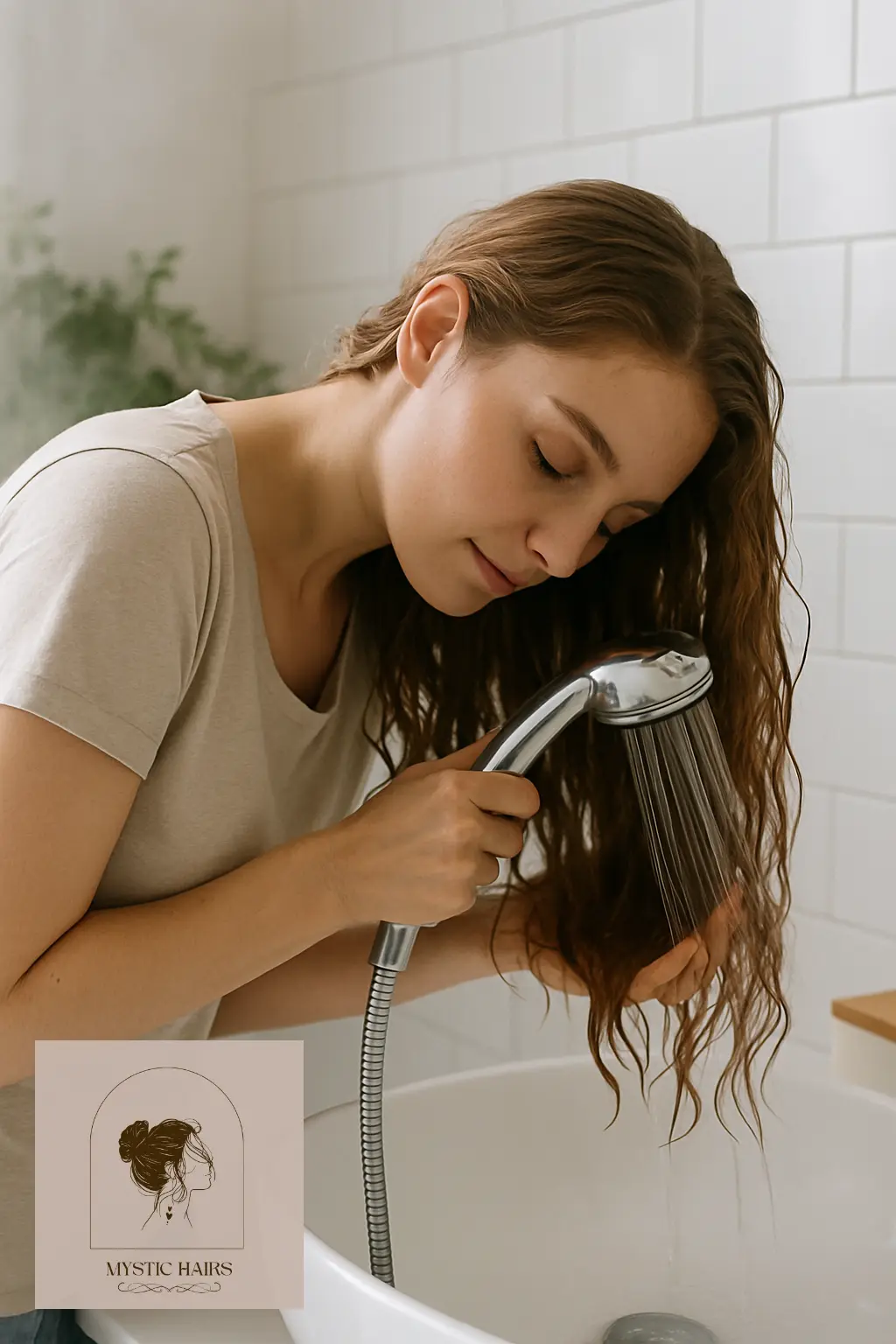
3. Use Aloe Vera Gel as a Natural Softener
Aloe vera is packed with vitamins A, C, and E, which promote cell turnover and repair damaged hair. Applying aloe vera for hair softness is a powerful way to hydrate strands and reduce frizz without buildup. Its lightweight gel texture smooths the hair shaft and adds a natural slip, making it easier to detangle.
You can apply pure aloe gel directly to clean, damp hair, leave it on for 20–30 minutes, and rinse thoroughly. This treatment restores moisture, adds shine, and soothes the scalp. Because it’s free from heavy oils or chemicals, it’s suitable for all hair types looking for a natural way to get soft hair consistently.
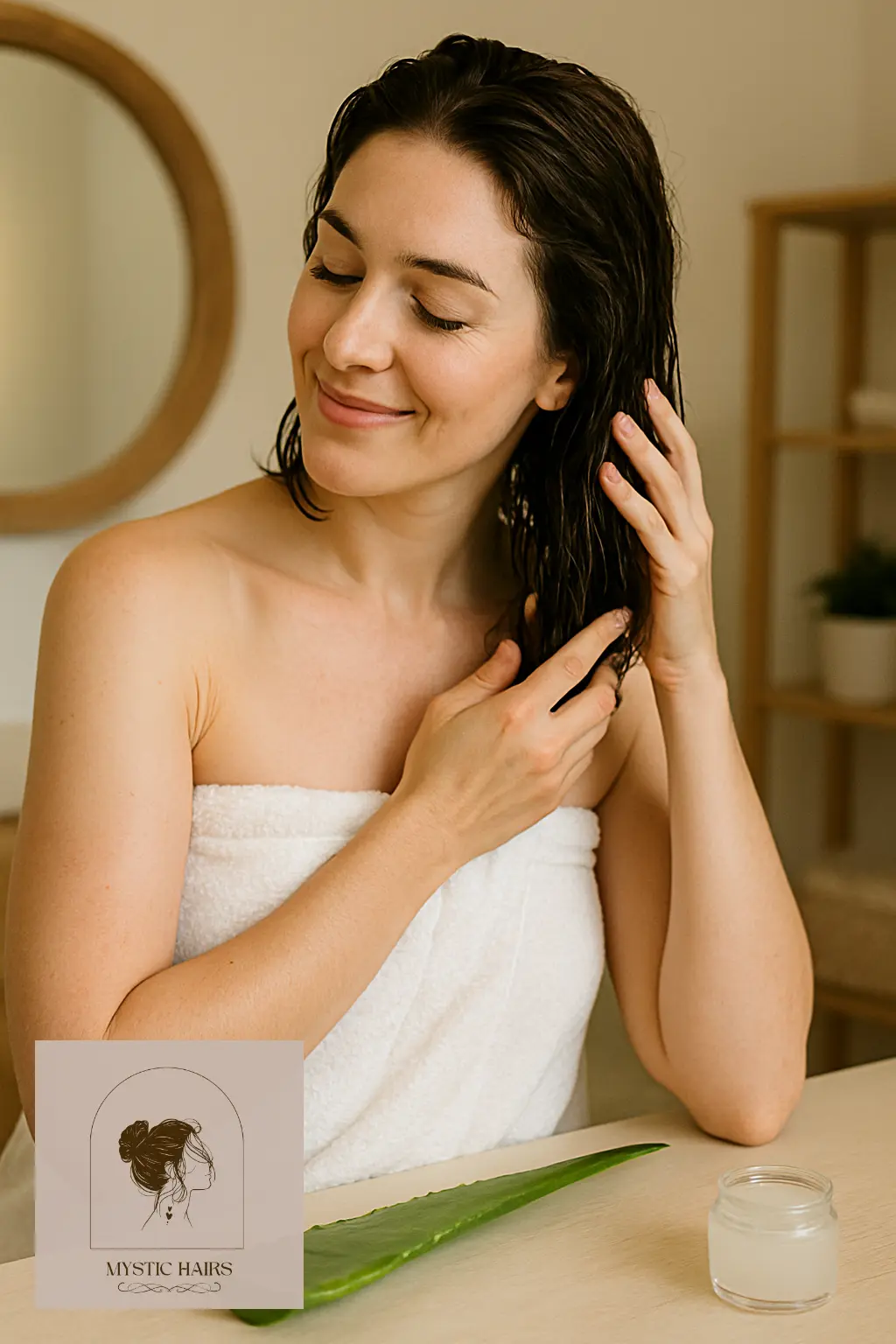
Softness and definition often go hand in hand for textured hair. Exploring natural ingredients for curly hair gives you nourishing options that fight dryness while keeping curls smooth and touchable.
4. Avoid Heat Styling and Air Dry Naturally
One of the easiest ways to achieve naturally soft hair is by reducing your reliance on heat tools like straighteners, curlers, and blow dryers. These devices weaken the protein bonds in your hair, causing dryness and brittleness. Letting your hair air dry helps preserve its natural moisture balance and texture.
If you must use heat, apply a natural protectant like a small amount of shea butter or avocado oil. But ideally, try towel blotting (not rubbing) and letting your hair dry in loose braids or twists to encourage smoothness. Over time, this low-maintenance method improves softness and supports healthier, frizz-free hair naturally.

5. Massage Scalp Regularly to Stimulate Oils
Your scalp naturally produces sebum — an oil that conditions your hair. Regular scalp massage for softer hair encourages the even distribution of these natural oils from root to tip. Use your fingertips in small circular motions for 5–10 minutes daily to increase circulation and stimulate oil production.
Not only does this promote softness, but it also relieves tension and can even support better hair growth. When combined with a bit of warm natural oil, scalp massage becomes a nourishing ritual that strengthens roots, reduces dryness, and enhances the softness of your strands. It’s a simple, no-cost habit that brings long-term natural hair benefits.

6. Apply Banana and Honey Hair Mask Weekly
A deeply hydrating DIY treatment, a banana and honey mask for soft hair delivers moisture, shine, and smoothness. Bananas are rich in potassium and natural oils that help soften the hair, while honey is a humectant, locking in moisture and adding a glossy finish. Together, they form a powerful combination to nourish dull, dry strands.
To make the mask, blend one ripe banana with two tablespoons of raw honey. Apply the mixture to damp hair, cover with a shower cap, and leave it on for 30–45 minutes before rinsing thoroughly. Regular use of this natural remedy restores elasticity, smooths the cuticle, and makes your hair silky and soft without chemicals.
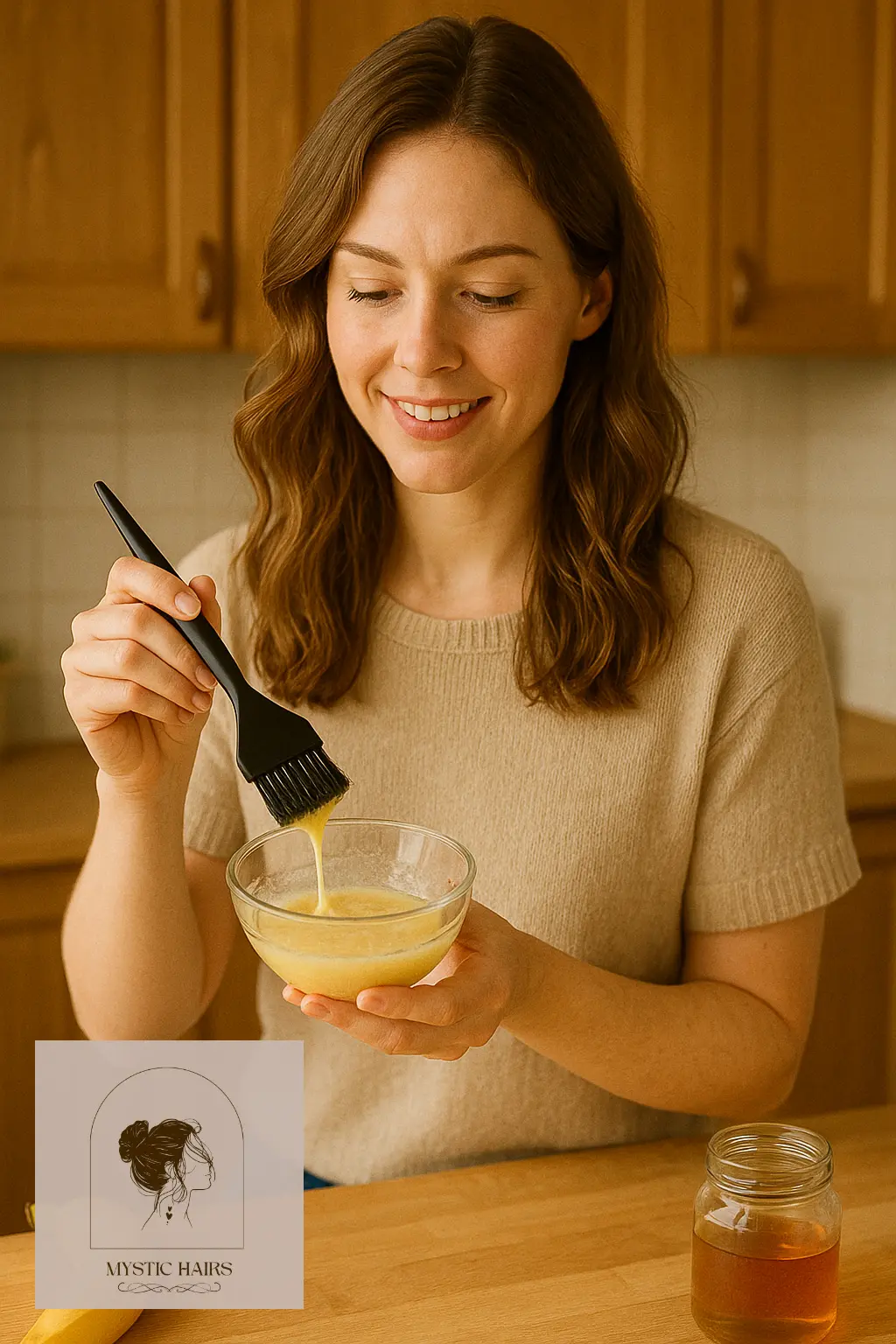
Many softening treatments also support overall hair health. Pairing them with natural remedies for hair growth creates a routine that not only makes hair silky but also encourages stronger, thicker strands.
7. Switch to a Satin or Silk Pillowcase
Your choice of pillowcase can directly impact how your hair feels when you wake up. Satin or silk pillowcases for softer hair reduce friction, preventing tangles, split ends, and moisture loss overnight. Unlike cotton, which can roughen hair fibers, satin allows your strands to glide smoothly and retain their natural oils.
This simple switch is especially beneficial for people with curly, coily, or textured hair, but all hair types can see improved softness. Over time, sleeping on silk supports frizz-free, naturally soft hair, making your morning styling routine quicker and easier.
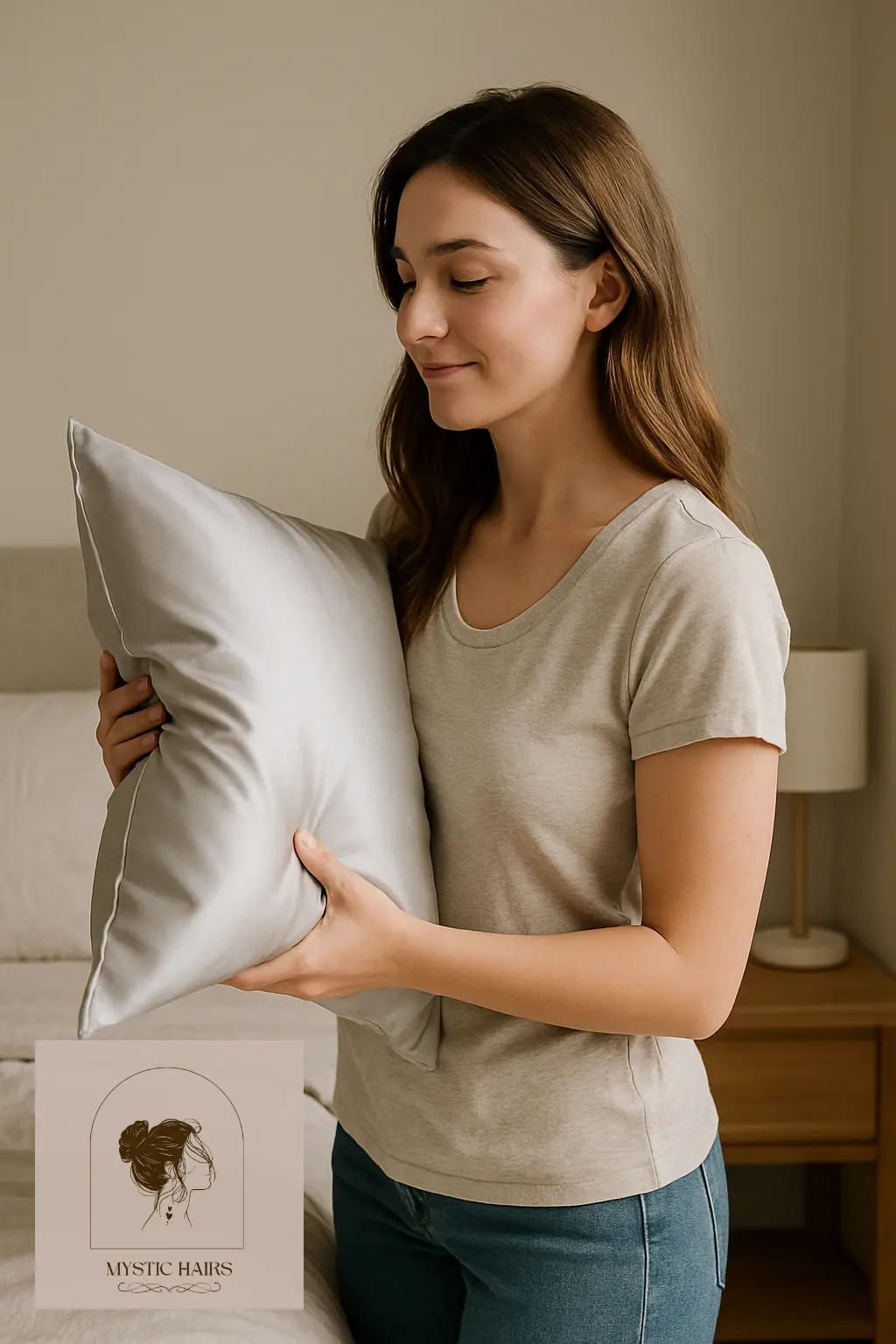
8. Use Apple Cider Vinegar as a Final Rinse
A diluted apple cider vinegar (ACV) rinse helps restore your scalp’s pH balance and closes the hair cuticle, resulting in shinier, softer hair. It also removes product buildup and residue that can cause dullness and stiffness. The natural acidity in ACV flattens the cuticle layer, which reflects light and enhances smoothness.
Mix 1–2 tablespoons of ACV with one cup of water and pour it over your hair after shampooing and conditioning. Let it sit for a couple of minutes before rinsing with cold water. This method naturally boosts hair softness and manageability, especially for those with oily or fine hair.

9. Stay Hydrated to Keep Hair Moisturized
Soft hair starts from within, and hydration plays a key role in hair texture. Drinking plenty of water helps keep your hair and scalp hydrated, improving elasticity and reducing dryness. Just like your skin, your hair needs moisture to stay smooth, flexible, and healthy.
Aim to drink at least 8 glasses of water a day and eat water-rich foods like cucumbers, oranges, and watermelon. Staying hydrated supports the natural oil production of your scalp and promotes healthy, soft hair from the inside out. It’s one of the easiest — and most overlooked — ways to get softer hair naturally.

10. Avoid Harsh Shampoos and Sulfates
Many commercial shampoos contain sulfates and alcohols that strip your hair of its natural oils, leaving it dry and brittle. Switching to sulfate-free shampoos or natural cleansers is essential for maintaining softness. Look for gentle formulas with ingredients like aloe, oats, or tea tree that cleanse without over-drying.
Washing your hair too frequently can also contribute to rough texture. Try limiting washes to 2–3 times a week and focus on conditioning to maintain balance. This helps preserve the scalp’s natural oils, promoting naturally softer and healthier hair in the long run.
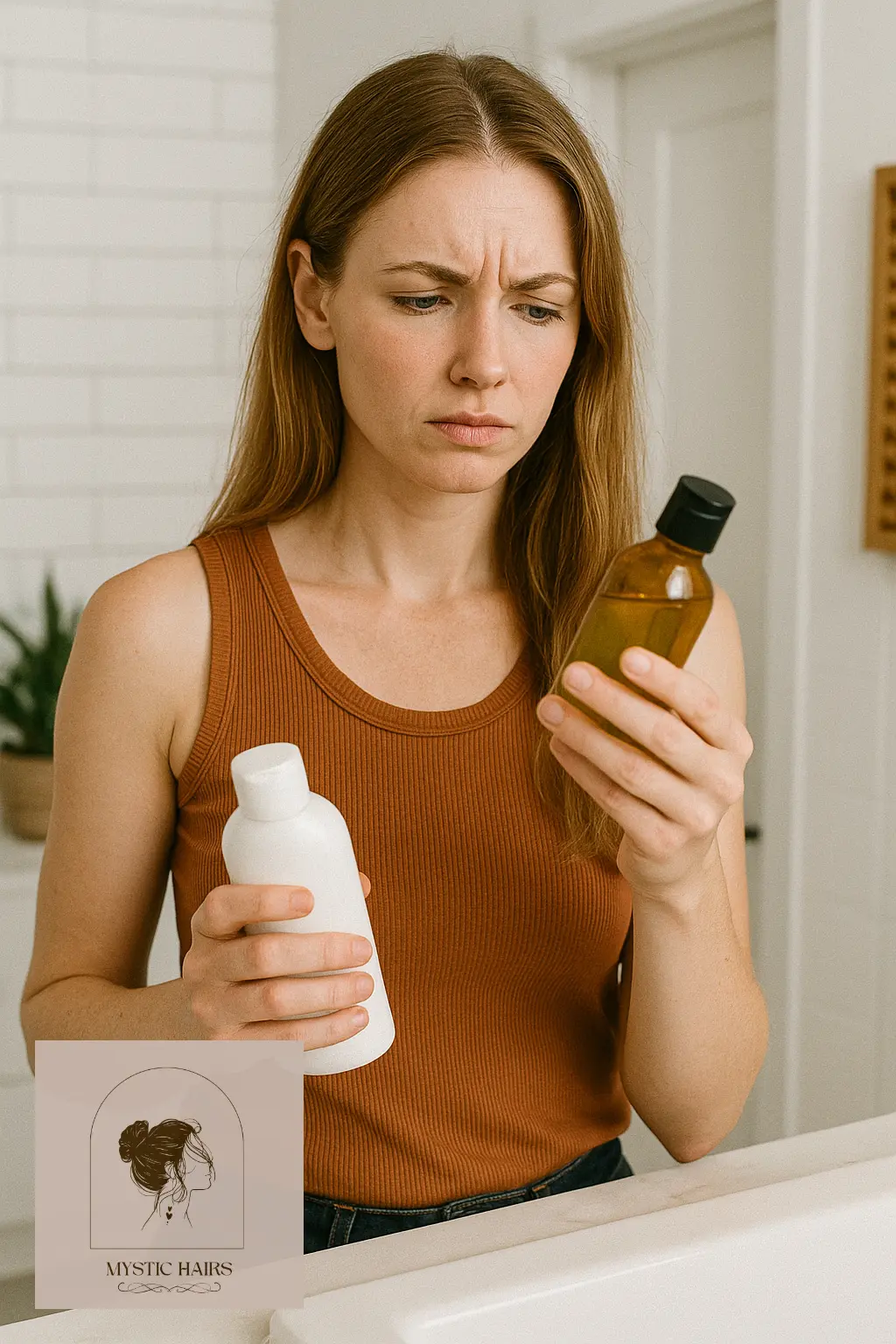
When hair feels rough or brittle, it can also appear thinner over time. Learning how to stop thinning hair in women ensures that your softening methods also protect density and volume.
11. Deep Condition with Aloe Vera Gel
Aloe vera is a time-tested natural remedy known for its hydrating and healing properties. When used as a deep conditioner for soft hair, it helps to moisturize dry strands, reduce frizz, and calm the scalp. Its natural enzymes and amino acids penetrate the hair shaft, leaving it smoother and shinier.
Apply fresh aloe vera gel directly from the plant or use pure, preservative-free gel. Leave it on for 20–30 minutes before rinsing with lukewarm water. With regular use, aloe vera promotes softer, stronger hair without relying on synthetic products.
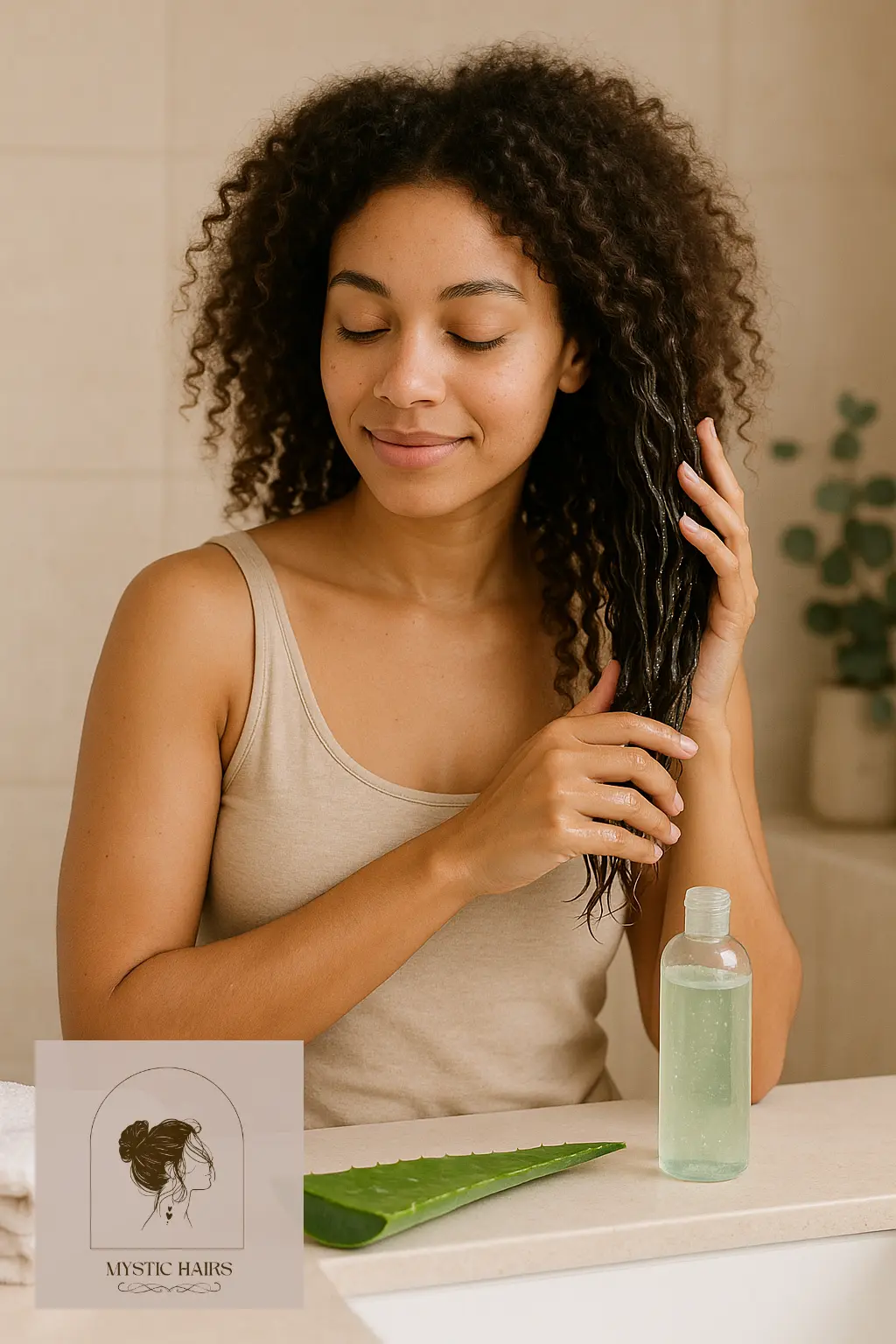
12. Use Rice Water Rinse for Strength and Shine
An ancient beauty secret, rice water is rich in inositol, a carbohydrate that repairs and strengthens damaged hair. A rice water rinse for natural softness not only reduces friction but also smooths the hair surface and adds luster. It’s particularly beneficial for people with fine or limp hair.
To prepare, soak uncooked rice in water for 30 minutes, strain it, and use the starchy water as a final rinse after washing your hair. This traditional remedy enhances hair texture, softness, and growth, making your hair feel silky and rejuvenated over time.
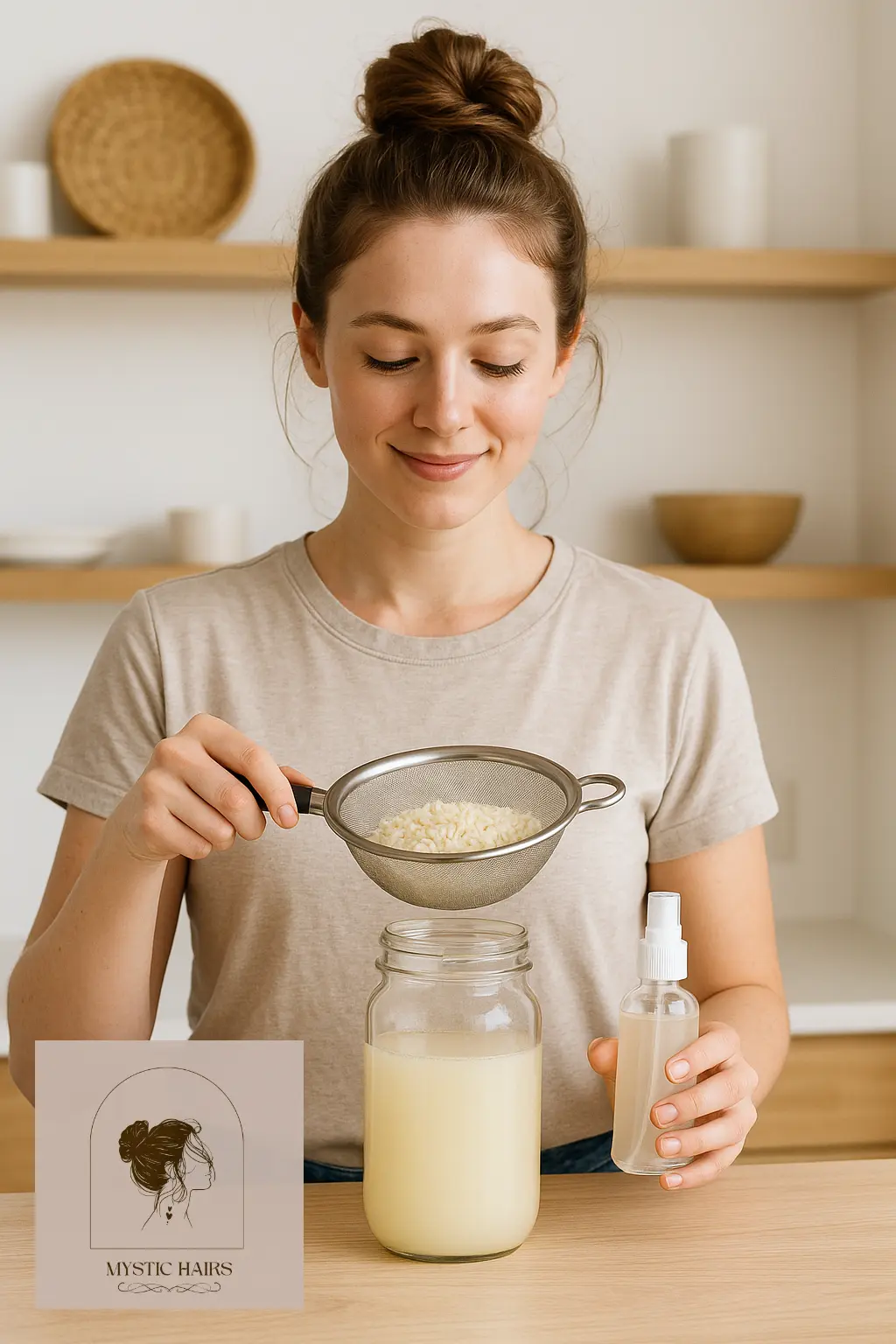
13. Protect Hair from Excessive Sun Exposure
UV rays can dry out your hair and strip it of its natural oils, making it feel rough and brittle. Wearing hats, scarves, or using natural UV protectants helps in protecting your hair from sun damage, preserving its softness and moisture.
Just like skin, hair needs protection from environmental stressors. Especially during summer or prolonged outdoor exposure, shield your strands to maintain hydrated and naturally soft hair throughout the year.

14. Avoid Heat Styling Tools as Much as Possible
Frequent use of heat styling tools like flat irons and blow dryers can rob your hair of moisture, causing dryness and frizz. To achieve softer hair naturally, minimize heat usage and let your hair air dry when possible. Opt for heatless styling techniques like braids or rollers to maintain volume and shape without damage.
If you must use heat tools, always apply a natural heat protectant beforehand. Reducing heat exposure is one of the most effective ways to maintain healthy, smooth, and soft hair over time.
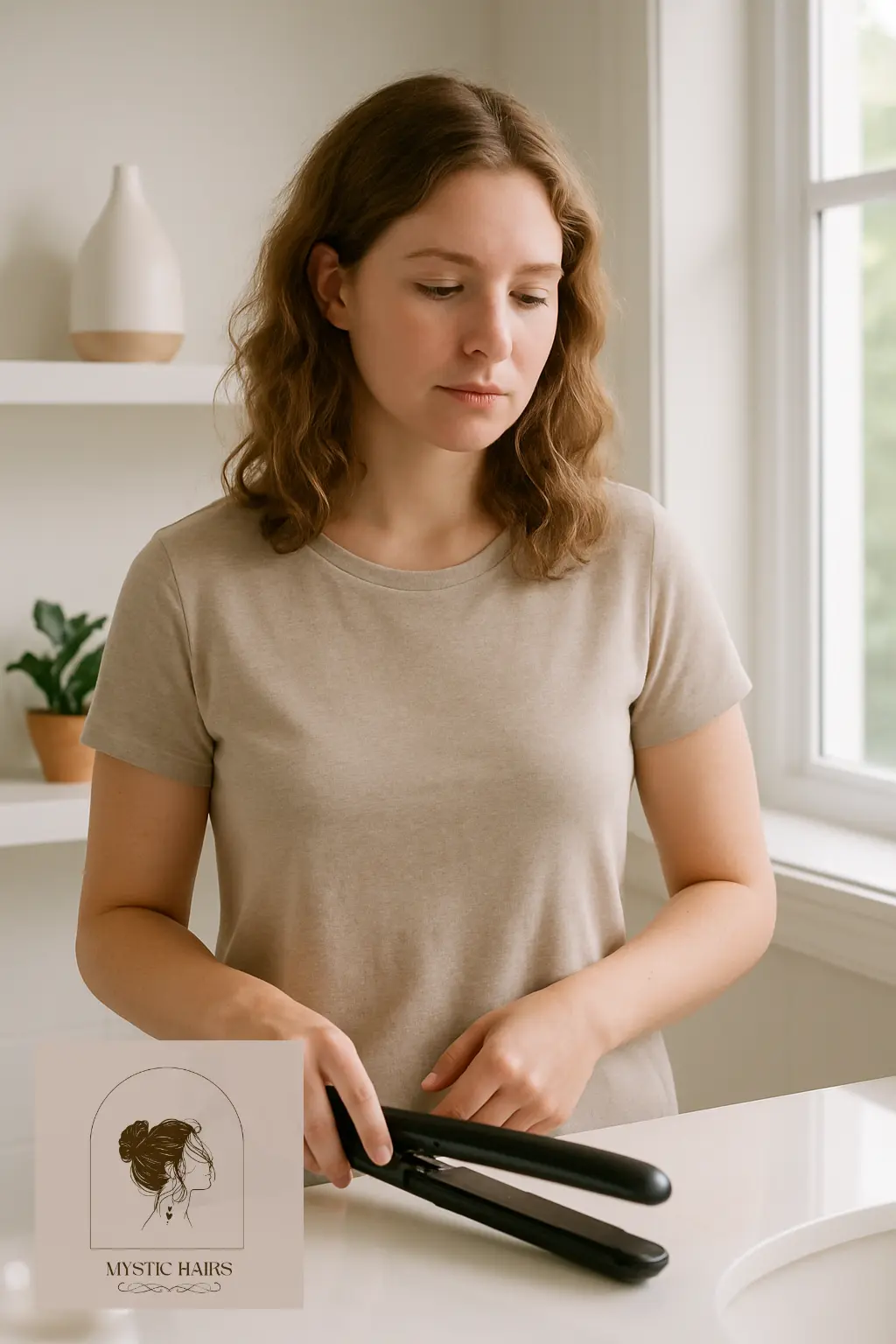
Even the best natural treatments can lose effectiveness if you use the wrong tools. Understanding how to choose the right hair brush complements your softening routine by preventing friction and preserving smoothness.
15. Keep Your Ends Trimmed Regularly
Split ends and rough tips can make your hair feel coarse even if the rest of it is healthy. Getting regular trims every 6–8 weeks is key to maintaining soft, manageable hair from root to tip. Trimming removes damaged, dry ends and prevents split ends from traveling up the shaft.
Don’t wait until your hair starts to feel rough—proactive trims encourage healthy growth and preserve a polished, soft finish. Incorporating this into your routine supports natural hair softness and overall health.
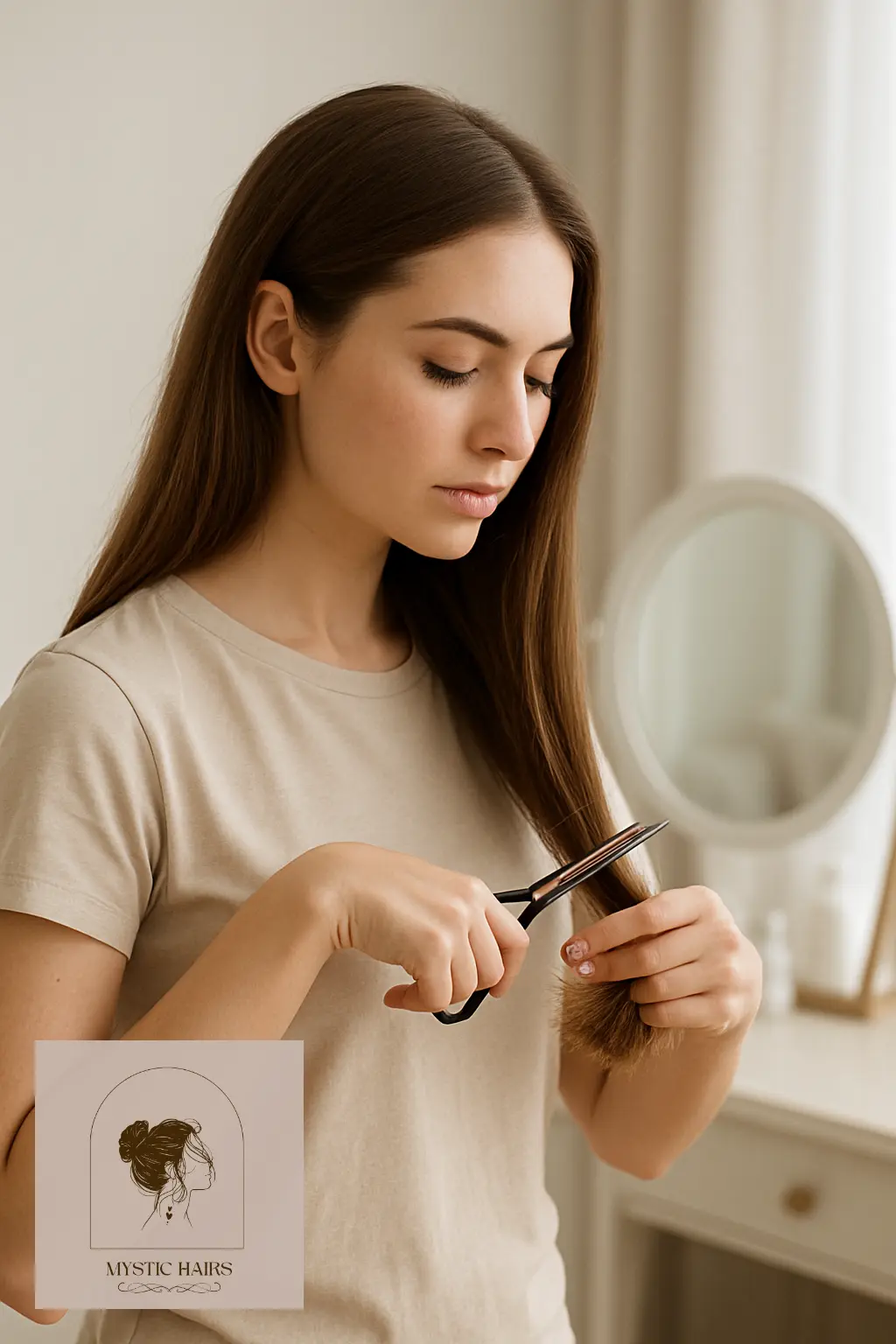
Bonus Section: Simple Daily Habits for Softer Hair
- Use a microfiber towel or cotton T-shirt to dry your hair instead of regular towels, which cause friction and roughness.
- Comb gently with a wide-tooth comb on damp hair to avoid breakage and maintain softness.
- Massage your scalp regularly to stimulate natural oil production and improve circulation.
- Limit exposure to chlorine or saltwater, both of which can strip moisture.
- Tie hair loosely to prevent unnecessary tension and breakage, especially during sleep.
These small, consistent habits make a noticeable difference in achieving naturally soft and healthy hair without harsh treatments.
Final Note
Achieving soft hair naturally is entirely possible with mindful care and consistent, gentle routines. By choosing natural methods for softer hair, avoiding harsh products, and nourishing your strands inside and out, you create lasting softness and strength. Remember, true hair health isn’t just about appearance—it’s about how you treat your hair every day. Stay committed to these practices, and over time, you’ll enjoy the beautiful, touchably soft hair you’ve been aiming for—naturally and confidently.

Aria Blake is a beauty writer and hairstyle curator passionate about empowering women through timeless trends and modern haircare. With a deep love for natural textures and creative styling, Aria blends expert tips with real-life inspiration to help you look and feel your best—every single day. When she’s not writing for MysticHairs.com, you’ll find her exploring protective styles, sipping herbal tea, or pinning dreamy looks for your next hair glow-up.

